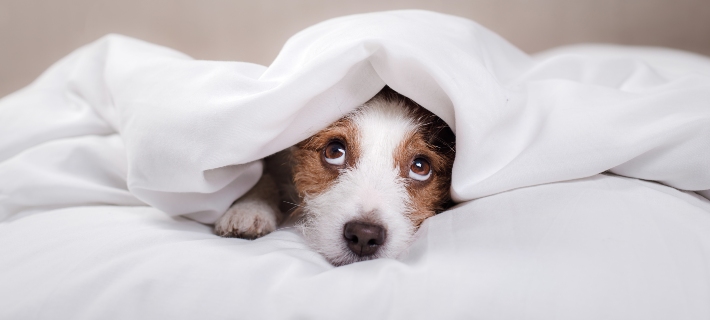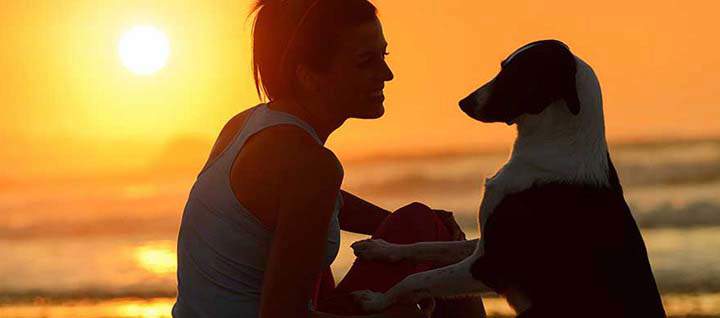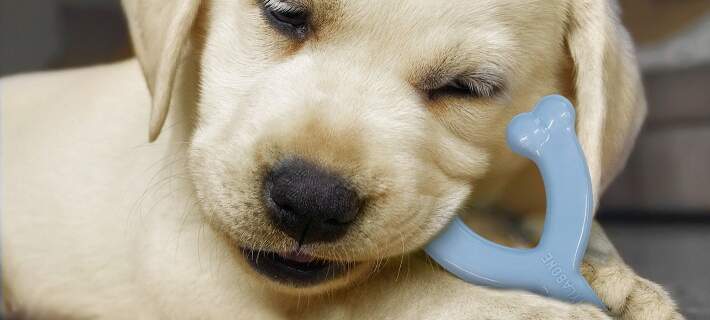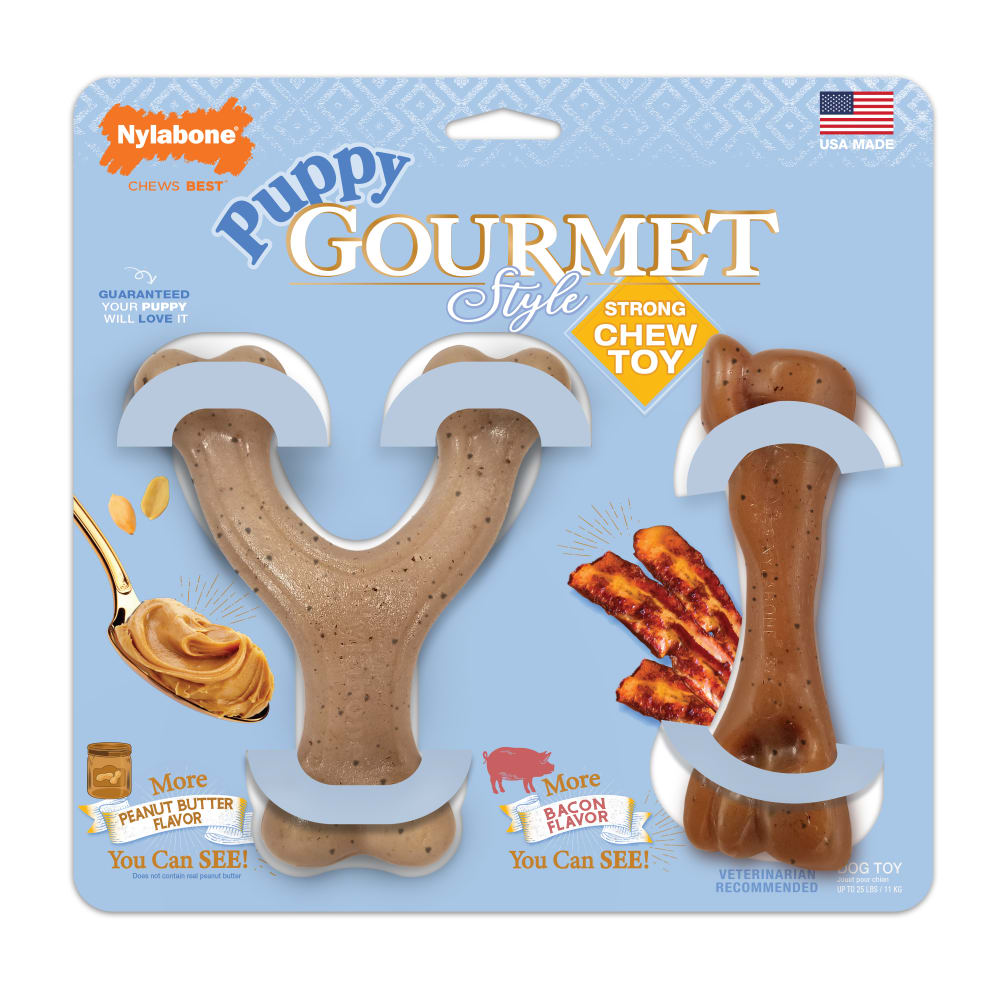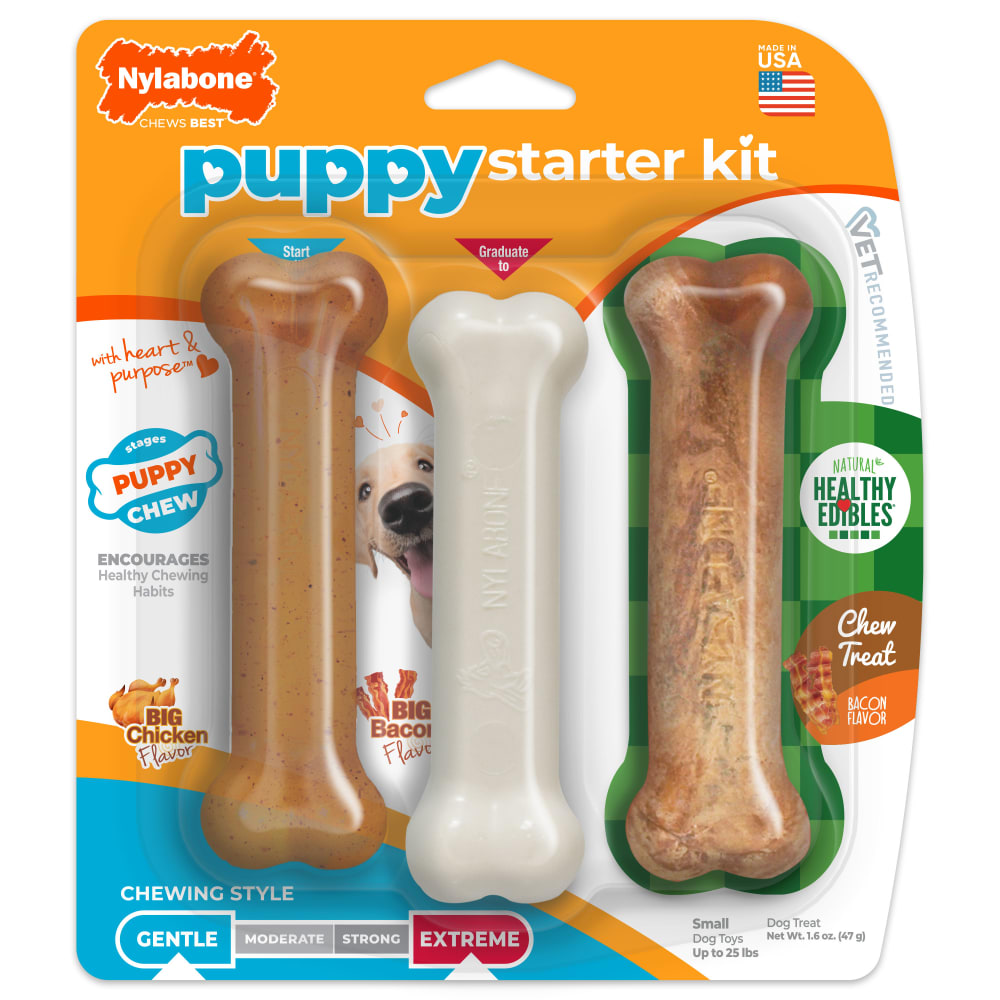Dos and Don’ts for the First Night with Your Puppy
There's nothing like the joy of welcoming your furry friend home for the first time! As much as we all hope for a smooth transition, there are a few steps you'll need to follow to help them acclimate to their living space and learn the house rules. These dos and don'ts will help set you up for a successful first night with a puppy as you welcome your pup into their new home.
Playtime
Do: Introduce puppy play toys and start bonding with your dog!
Don't: Leave your puppy to play unattended.
One of the best parts about a new companion is all the memories you get to start making together. Not only is playtime a great way to help release any excess energy during your puppy's first night at home, but it is also an essential part of forming a loving bond. Play toys make great training tools; use them as a reward while practicing dog training commands such as fetch! Your pup will see the toy as their reward for successfully returning it to you, which results in another game of play.
As your dog grows, they can graduate to even more types of playtime fun, such as Creative Play toys and treat toys stuffed with tasty rewards.
Treating
Do: Reward positive behavior with a puppy chew treat.
Don't: Indulge your puppy with table scraps.
Did you know you can start training your puppy as soon as they come home? Treating is an excellent way to reinforce positive behaviors during obedience training. Simply break apart a soft chew treat and give it to your pup immediately after a desired behavior. Follow up with a positive verbal affirmation and let the learning process begin! You can also use treats to keep your puppy distracted during stressful or exciting situations, like going for their first veterinarian visit or socializing.
Because puppies can have particularly sensitive stomachs, it's best to avoid feeding them any of your table scraps and stick with a tasty dog treat or chew.
RELATED: How to Socialize Your Puppy
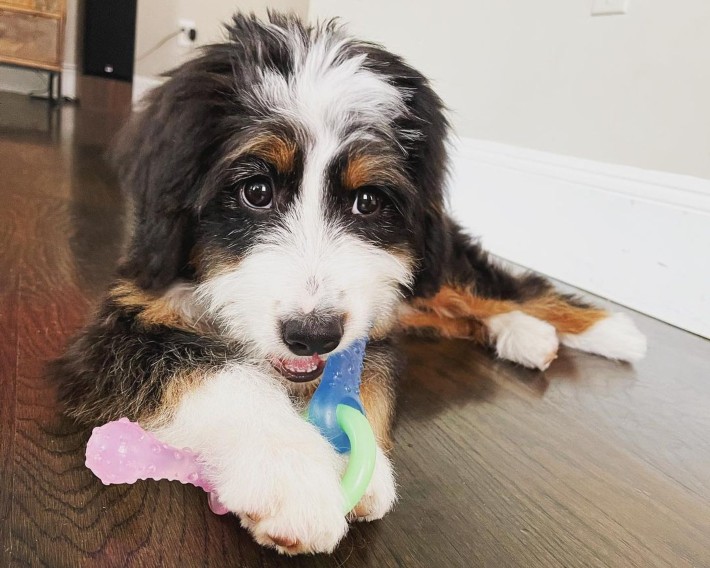
Photo: @ birdie_thebernedoodle on Instagram
Teething
Do: Provide puppy chew toys for teething relief.
Don't: Forget to keep any dangers out of reach.
It's no secret that puppies love to chew! It is a natural instinct in all dogs, especially when chewing helps to relieve teething discomfort. Since it takes time to establish which items are off-limits, it's important to puppy-proof your house before you bring your furry friend home. Hiding electrical cords and keeping things like shoes and towels out of reach will help to avoid any potential danger.
Give your pup chew toys to help with puppy teething rather than your favorite pair of shoes! You'll want to do your best to correct inappropriate chewing as it happens. Simply replace whatever object your pup tries to chew with proper puppy chew toys.
Potty Training
Do: Encourage your puppy to pee in a designated spot.
Don't: Become frustrated over potty accidents.
Whether you want your dog to go potty outside or use a Wee-Wee® Pad inside, it's important to start introducing potty training on the first night with a puppy. Because your pup won't know how to communicate their desire to go potty yet, you should monitor their water intake in the early going. Depending on their age, they'll likely need to go between 10–30 minutes after eating or drinking.
Developing a training habit takes time and consistency, so don't be concerned if you need to clean a few accidents early on.
Crate Training
Do: Identify a sleep spot for your puppy that first night at home.
Don't: Associate the crate with a negative experience.
How to crate train a puppy at night is one of many topics new pet parents might wonder about. The key to successful crate training is to positively introduce your furry friend to their new environment. Place a cozy blanket in the crate and reward them with a delicious treat when they go inside. Eventually, your pup will recognize the crate as a safe space rather than a punishment.
Crate training a puppy is not only a great way to keep your companion safe at night, but an open crate can also be used during the day as a private spot that will bring them comfort whenever they feel anxious.
No Need for a Ruff Start!
While welcoming home a new furry friend can feel overwhelming, that first night with a puppy does not need to be! These dos and don'ts will not only help your pup get as comfortable as possible, but they will also help you establish a bond together. Puppies grow fast, so be sure to cherish all those early (and often messy) moments!
Ready to quiz your puppy smarts? Test your skills with our ultimate puppy knowledge challenge.
FOLLOW US!

